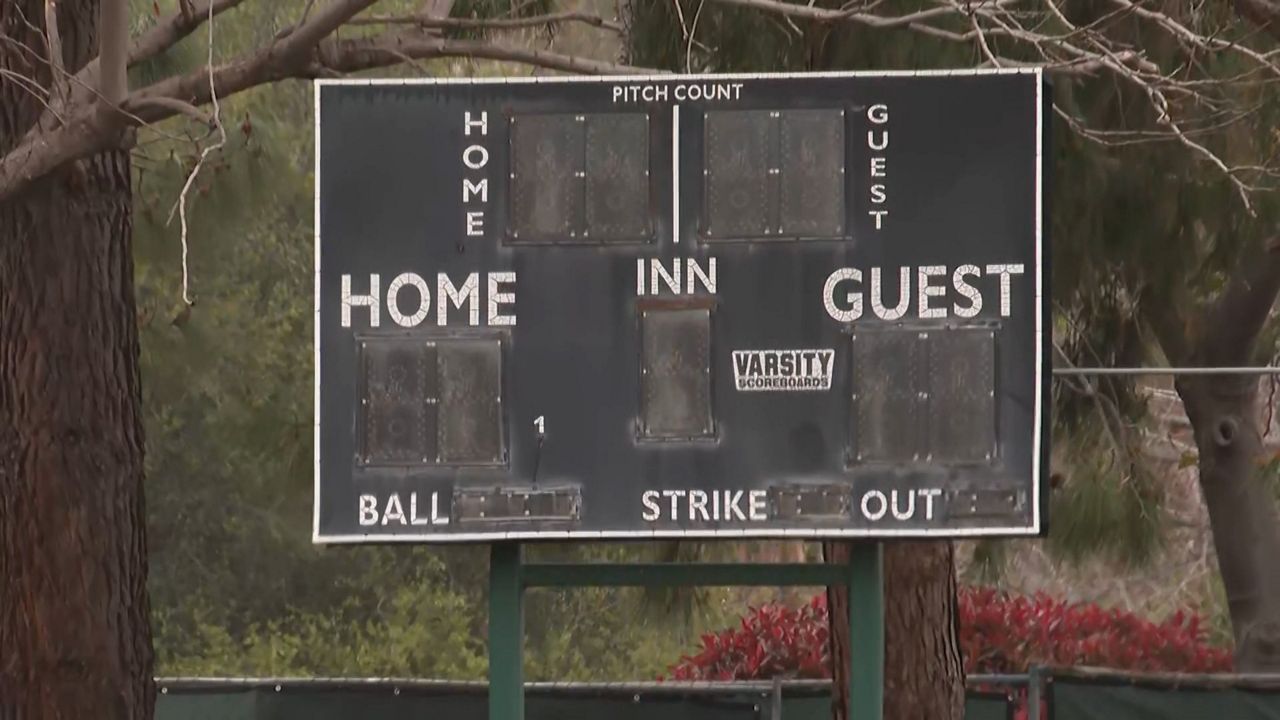RANCHO PALOS VERDES, Calif. — Six months ago, it was a barely noticeable crack in the foundation of Michele Smith’s home in the Portuguese Bend neighborhood. Today, that crack has widened into a gaping chasm, symbolic of the upheaval in her life.
“This is how much it’s grown,” Smith said, gesturing toward the fissure.
For 36 years, Smith and her husband built a life on this serene stretch of Rancho Palos Verdes, raising their children in a close-knit community with picturesque views. Now, serenity has been replaced by survival.
“It is heartbreaking watching your house get torn up,” Smith said.
Accelerating land movement has left Smith’s family without power for months. Desperate to save their home, they’ve spent their savings filling fissures and attempting to fortify the property. The repairs have come at a staggering cost.
“I think we’re going to end up spending $200,000 to save the house,” Smith said.
The family has weighed the city’s voluntary buyout program, which offers compensation to affected residents, but leaving behind decades of memories isn’t a straightforward decision.
Adding to their anxiety is the upcoming rainy season, which could exacerbate the already precarious situation.
“We have a fissure under the house,” Smith said. “If the fissure gets big like that, we’re done. So it’s a gamble.”
Geologist Dan Steward, who assessed the Smith property, said last year’s historic rainfall was a key catalyst for the land’s instability. He warns that another season of heavy rain could have long-term consequences.
“It doesn’t make them worse immediately,” Steward explained. “The effects would be, you know, two, three, four months or more in the future. Very likely.”
Rancho Palos Verdes Mayor John Cruikshank says the city is better prepared to combat land movement this year. Ten deep-dewatering wells, each extracting 800 gallons of water per minute, have been installed to reduce groundwater and slow land shifts.
“Our city is going to continue to work throughout the wintertime,” Cruikshank said. “If things seem to not be working, we’ll adjust those to correct that and make them work.”
For Smith, the situation remains precarious. Back at her home, she acknowledges the unpredictability of the forces at play.
“I try to stay positive. Sometimes it works, sometimes it doesn’t,” she said.
As the rainy season looms, Smith and her neighbors in Portuguese Bend can only hope their efforts—and the ground beneath them—hold steady.













